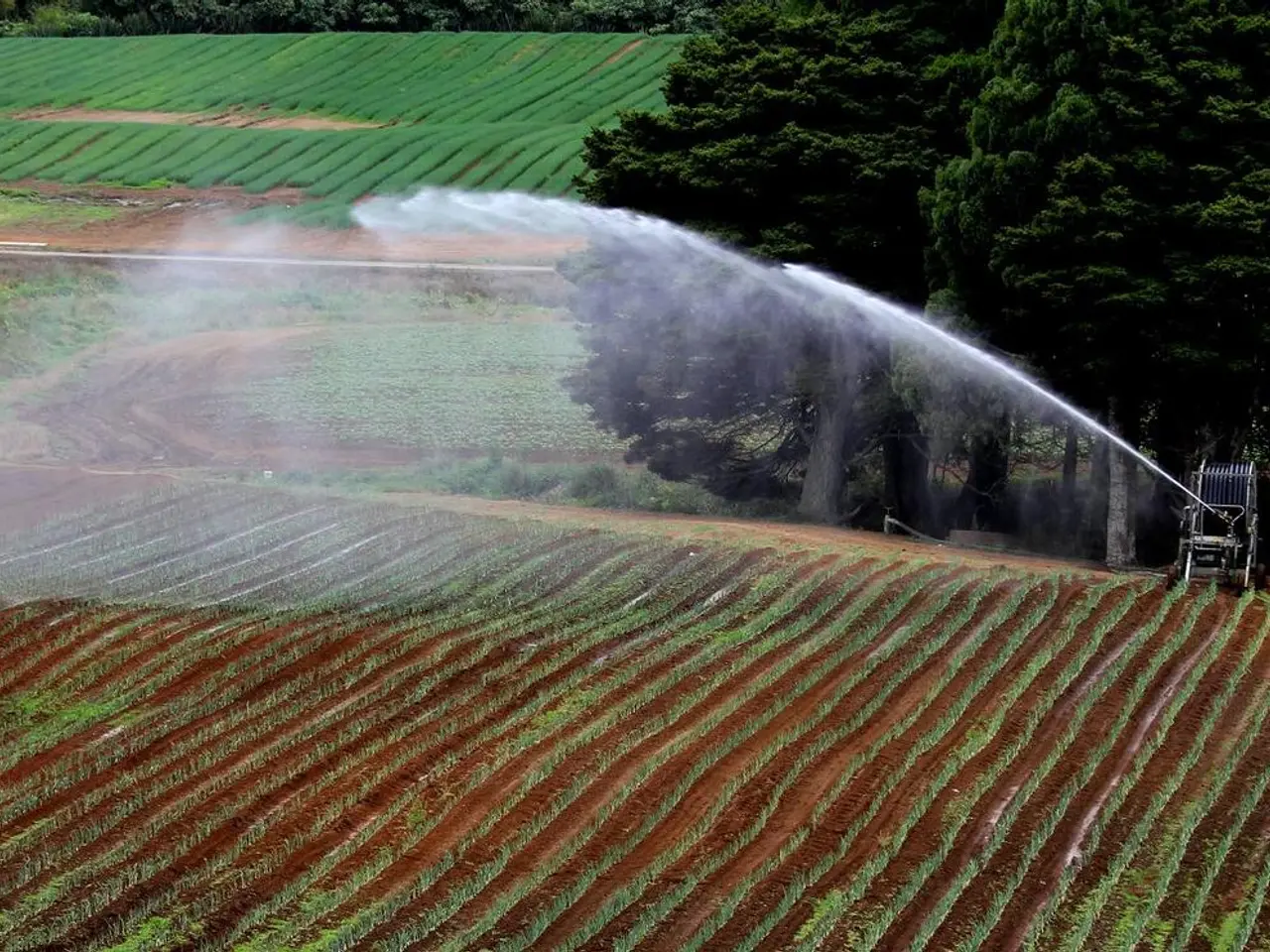Transforming Agriculture with Artificial Intelligence Innovations
In the rapidly evolving world of technology, artificial intelligence (AI) is making its mark in the farming industry. AgriDigital, a pioneering company, is leveraging blockchain and AI technology to digitize grain management for farmers, offering customizable solutions tailored to their needs.
However, the adoption of AI in agriculture faces challenges, particularly in rural areas where only 73% of U.S. citizens typically have access to high-speed Internet, creating a digital divide.
Despite these hurdles, the implementation of AI in farming operations has proven to be a game-changer. By optimizing resource use, automating labor-intensive tasks, enhancing yields, and lowering operational risks, AI is reducing costs and increasing profitability.
For instance, in dairy farming, AI technologies monitoring cow health and milk production have been shown to generate an additional profit of about $400 per cow per year by increasing milk yield and cutting veterinary costs. More broadly, farms using AI have experienced yield increases of 10-30% and operating cost reductions of roughly 15-25%.
AI's impact on cost and profitability is multifaceted. It leads to cost savings through precise application of water, fertilizers, pesticides, and chemicals, predictive equipment maintenance reducing downtime, and labor savings from automated irrigation, feeding, and harvesting systems.
Profitability gains are achieved through higher crop yields and improved animal productivity without expanding land or herd size, better risk management with AI-enabled early warnings on weather, pests, and diseases, and improved decision-making from real-time data analytics.
Labor efficiency is another key advantage. Automation of routine tasks allows farm workers to focus on complex management, cutting labor costs and improving operational efficiency.
AI also offers sustainability benefits, promoting healthier soil and a reduced environmental impact, which aligns with long-term farm viability and contributes indirectly to sustained profitability.
Despite the numerous benefits, the primary challenge to adoption is the high initial investment cost and technical expertise required, which can be a barrier, especially for small-scale farmers.
AI is also fostering efficiency in the agricultural product supply chain by monitoring and streamlining the movement of goods from the field to the market. However, employee resistance to new implementations can be a challenge, with fears of losing jobs or lack of understanding about the benefits of AI in agriculture.
Despite these challenges, the future of agriculture looks promising with AI. Companies like Climate FieldView, IBM's Watson Decision Platform for Agriculture, Inari Agriculture's SEEDesign, CattleEye, and Smartbow are leading the way, using AI for data collection, analysis, and decision-making to revolutionize farming practices.
Moreover, AI can cut water use by half in the future of agriculture, making it a crucial tool for sustainable farming. The value of AI in the agricultural sector is predicted to grow to approximately $4.7 billion by 2028, reflecting its growing importance in the industry.
The global agricultural supply management market size reached $358.6 million in 2022 due to AI software development for supply chain predicting market trends, inventory, and travel management. As AI continues to evolve, it is attracting new talents to companies and making them pioneers in a new era of agriculture.
In conclusion, AI's implementation significantly reduces farming operational costs while increasing productivity and profitability through resource optimization, automation, and improved decision-making, making it a transformative technology for modern agriculture.
Read also:
- MoneyGram's Investment in 'Drive to Survive' Yielded Results?
- "New York City rideshare service to depart market; will concentrate on electric vehicle charging infrastructure development"
- Chevy Silverado EV Covered Over 1,000 Miles Without Needs for Charging, Thanks to GM Engineers
- Expensive Fix for Owner's 392-Mile Lucid Air: Lucid Motors Asking for $7,000







